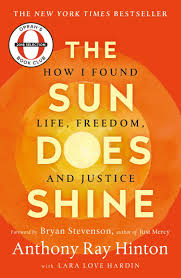When I first read Amor Towles marvelous novel, A Gentleman in Moscow, I was immediately struck by this:
“A man must master his circumstances or otherwise be mastered by them.”
I don’t think Towles means men and women should exert power over our environment and relationships, forcing them to conform to our will. After all, the hero of his novel, Count Alexander Ilyich Rostov, is forcibly under house arrest in the hotel he is staying at. He cannot leave without threat of death.
Rather I think Towles is focused on the attitude, the mindset we have when we face challenges, disappointments, tragedy, or injustice. But it’s an attitude that shapes our actions and ultimately our character. We can become victims of our circumstances, letting them force us into their mold, or we can rise above them.
 That is exactly what Alexander does. Instead of falling into despair, he makes the most of his new situation. Rather than seeking revenge, he looks for how he can contribute to the life and people of the hotel—both guests and staff. He takes a job in the hotel restaurant. He becomes guardian of an abandoned girl, and then the girl’s daughter. He falls in love. Over the course of decades, he makes a profound and lasting impact on the lives of many people—even though he is imprisoned!
That is exactly what Alexander does. Instead of falling into despair, he makes the most of his new situation. Rather than seeking revenge, he looks for how he can contribute to the life and people of the hotel—both guests and staff. He takes a job in the hotel restaurant. He becomes guardian of an abandoned girl, and then the girl’s daughter. He falls in love. Over the course of decades, he makes a profound and lasting impact on the lives of many people—even though he is imprisoned!
Anthony Ray Hinton is a true-life example of this. Wrongfully imprisoned and placed on death row for decades, he transformed from a cauldron of anger to a beacon of light for those around him. As chronicled in his astounding book, The Sun Does Shine, he mastered his circumstances long before he was finally exonerated and released.
The examples Towles and Hinton give are ones of shaping our circumstances not with force but with goodness, sacrifice, and generosity. Thus Towles memorable line about circumstances may need a slight alteration. The point is not to control our situation or ourselves in any way we wish. Rather it is a choice between two masters:
“We must allow grace to master us or we will be mastered by our circumstances.”
